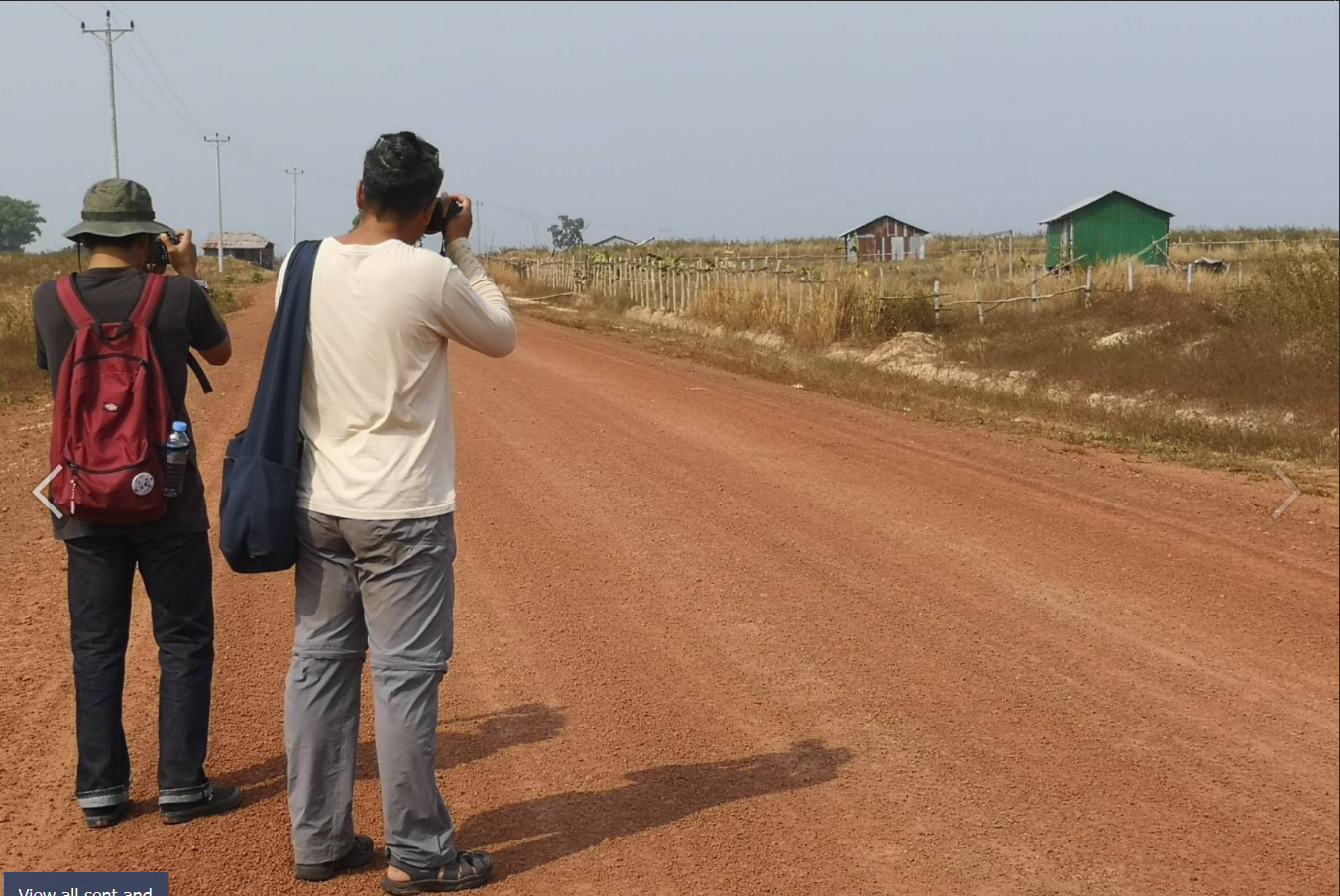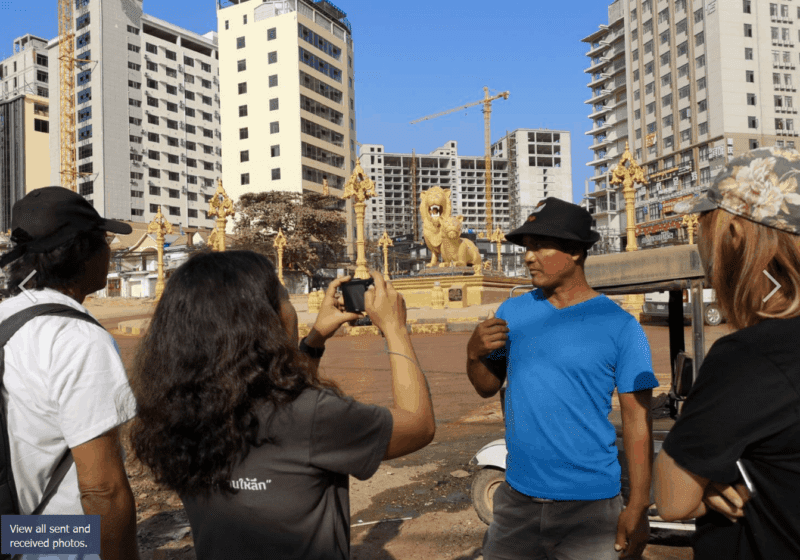Mega-infrastructure projects across Southeast Asia, many of them supported as part of China’s Belt and Road Initiative, are having a profound impact on the livelihoods and environments of communities across the region. To explore what those impacts mean, the Earth Journalism Networks’ Asia-Pacific project partnered with the Thai Society of Environmental Journalists (TSEJ) to conduct field reporting trips that allowed groups of journalists to report on transboundary developments along the southern economic corridor of the Mekong region.
To ensure broad coverage, TSEJ selected Thai journalists from both mainstream and alternative media outlets, including Thai PBS, The Nation, the Bangkok Post, 101 World, Way Magazine and TransborderNews. Eighteen journalists participated in the field trip to Dawei, Myanmar, to learn how Thai investments in the Dawei Special Economic Zone (DSEZ) are negatively affecting land rights and fisheries. Another 15 reporters visited Koh Kong and Sihanoukville, Cambodia, to cover how foreign investments in a sugar plantation and tourism development are harming the environment and deepening poverty.

Here are just a few of the stories they produced:
From Dawei
- This story in Thai in The Momentum looks at the Dawei Special Economic Zone, a transboundary mega-project started in 2008 with a road link between Thailand and Myanmar for industrial zones of 250 square kilometers. The construction, which built on indigenous land and forests, has caused landslides and water loss in rivers in this fertile territory.
- Another piece in Thailand’s The Nation explores how communities in Dawei are turning to tourism as a new source of income and an alternative to negative impacts from industrial development that have already displaced many families and now threatens the relatively pristine environment.
From Cambodia
- A Thai company invested two billion baht in the sugar industry after receiving a concession from the Cambodian government to grow sugar cane on a 20,000-hectare plot of land in Srae Ambel district. But as this report exposes, the concession sits on land that local communities say belongs to them. They allege that the plantation not only violates their land rights but is also leading to deforestation. The European Union has dubbed the violation “bloody sugar”, and in February partially suspended Cambodia’s preferential trade with the European Union, saying the government has failed to address serious human rights concerns, including ensuring labor rights.
- Chinese investment has turned a coastal vacation town into a dusty gambling city according to this story out of Sihanoukville. With 120,000 Chinese tourists regularly visiting the city, plus 70,000 Chinese residents, Sihanoukville has become a prime example of the reach of the Belt and Road Initiative. As the reporter finds, the cost of living here is much higher than other cities in Cambodia, land conflicts with locals are increasing, as is income inequality. Coastal fishermen have been turned into casino workers and construction noise has replaced bird songs.
In total, the reporters who joined the field trips produced 22 stories, 15 from Dawei and seven from Cambodia, with several more still slated for publication.
(Banner photo: Journalists interviewing a local tuk-tuk driver at one of the tourist landmarks in Sihanoukville. Credit: Juthamas Sukitjanont)
